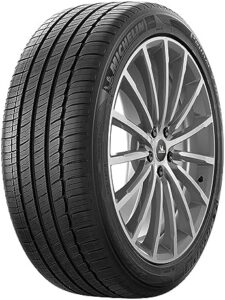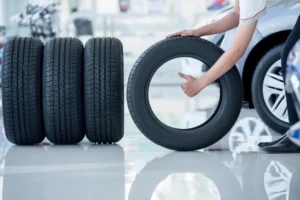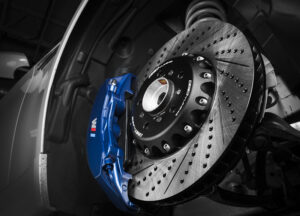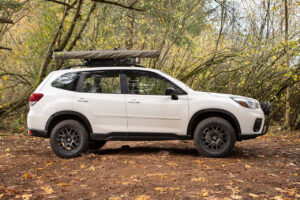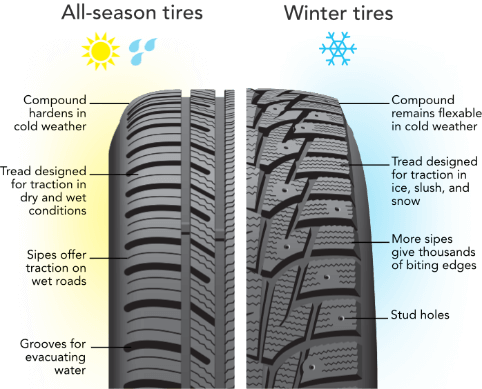
When it comes to choosing the right tires for your vehicle, it can be difficult to decide between all-season tires and summer tires. Both types of tires have their own unique advantages and disadvantages, and the best choice for you will depend on your specific driving needs and conditions.
All-season tires are designed to provide a balance of performance and durability in a wide range of weather conditions. They are made with a rubber compound that can maintain its flexibility in both warm and cold temperatures, which makes them a good choice for drivers who live in regions with changing weather patterns. Additionally, all-season tires typically have a symmetrical tread design that provides good traction in both wet and dry conditions.
Summer tires, on the other hand, are designed to provide maximum performance in warm weather conditions. They are made with a rubber compound that is specifically formulated to provide maximum grip and handling in temperatures above 7 degree Celsius. Summer tires also typically have a more aggressive tread design that provides improved cornering and braking performance. However, they may not perform as well in cold weather conditions.
So, which one is the right choice for you? If you live in a region with mild winters and hot summers, summer tires may be the best choice for you as they will provide maximum performance in the warm weather conditions. However, if you live in a region with harsh winters and changing weather patterns, all-season tires may be the better option as they can handle a wide range of weather conditions.
Ultimately, the choice between all-season tires and summer tires comes down to your specific driving needs and conditions. Consider the weather patterns in your area, your driving habits, and the type of vehicle you drive when making your decision.
- Price: All-season tires are often more affordable than summer tires, as they are designed to be more versatile and suitable for a wider range of conditions.
- Noise level: Summer tires tend to be noisier than all-season tires, due to their more aggressive tread design.
- Tread life: All-season tires typically have a longer tread life than summer tires, due to the more symmetrical tread design and the ability to maintain flexibility in a wider range of temperatures.
- Performance: Summer tires are designed for maximum performance in warm weather conditions, providing better grip and handling than all-season tires. However, in cold weather conditions, all-season tires may perform better than summer tires.
- Safety: Both all-season and summer tires can provide adequate safety, but it’s important to make sure that the tires you choose are rated for the specific conditions you will be driving in. In general, summer tires are not recommended to be used in cold weather conditions while all-season tires can be used year-round with some restrictions.
In summary, it is important to evaluate your driving needs and consider the weather conditions in your area before deciding whether to go for all-season or summer tires. All-season tires offer a balance of performance, durability, and versatility, making them a good choice for drivers who live in regions with changing weather patterns. Summer tires offer maximum performance in warm weather conditions, making them a good choice for drivers who live in regions with mild winters and hot summers

